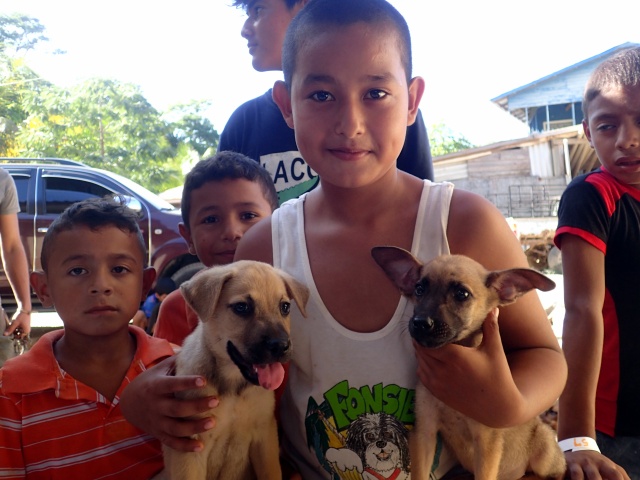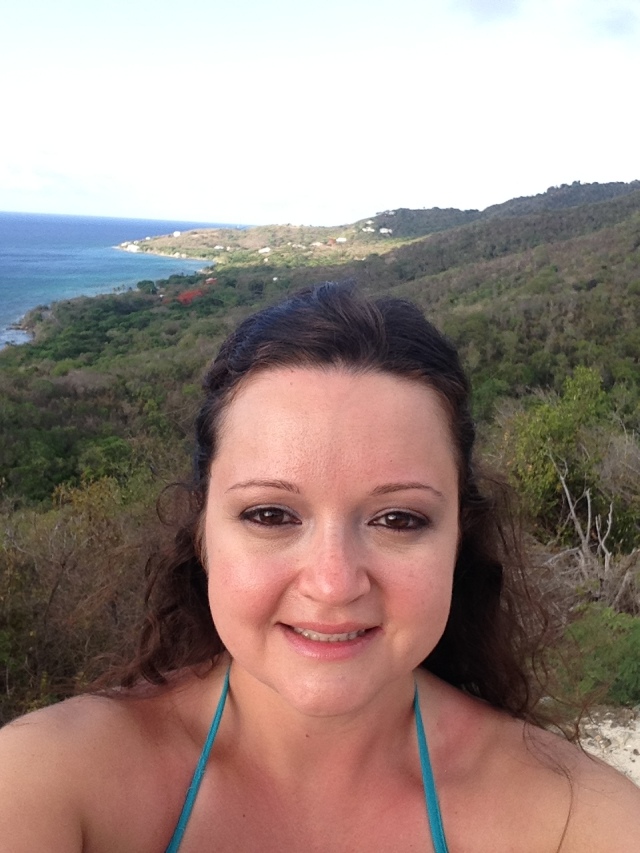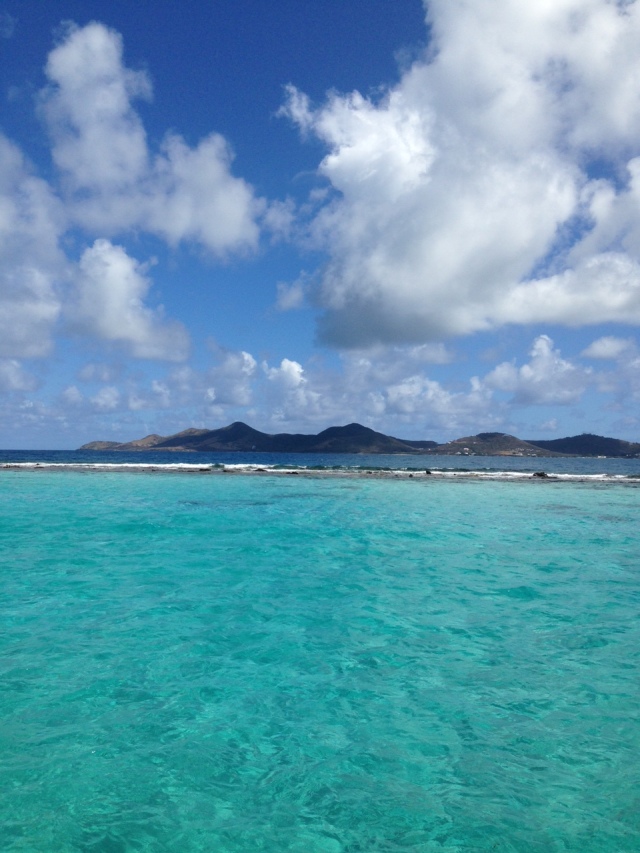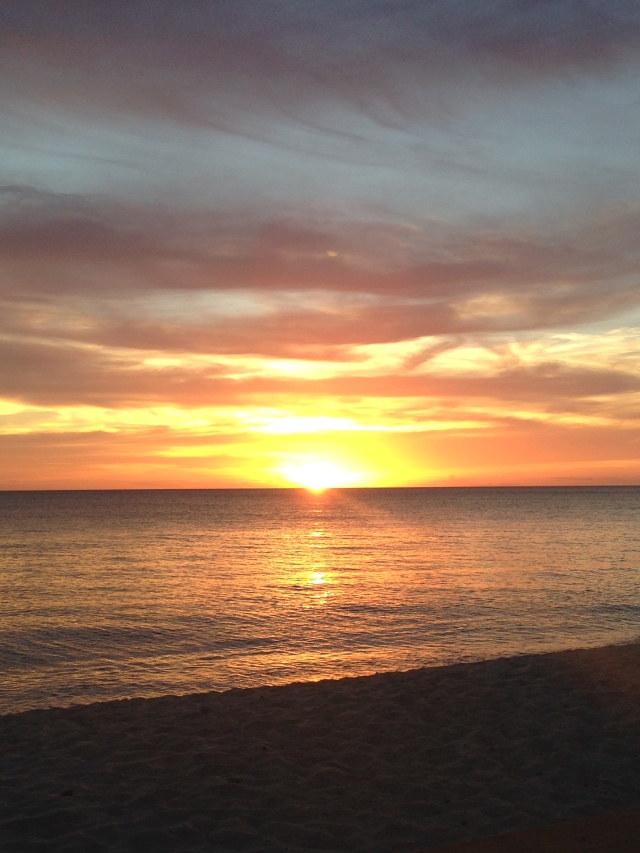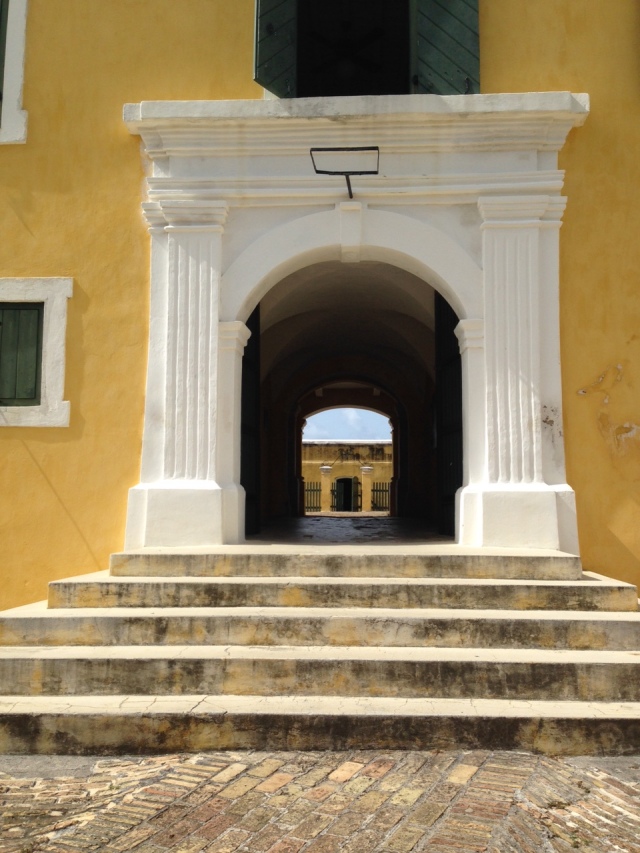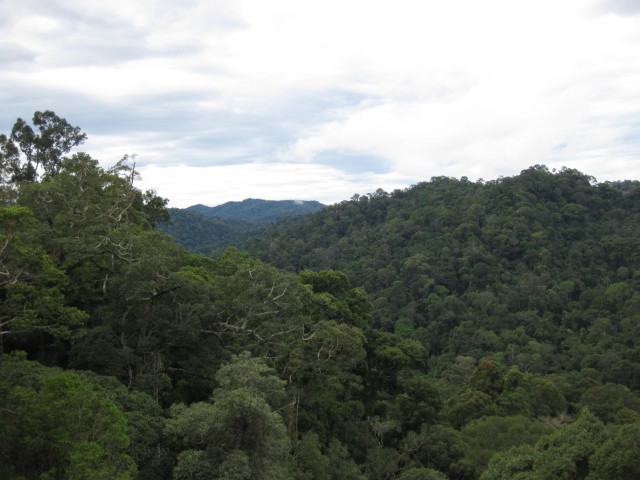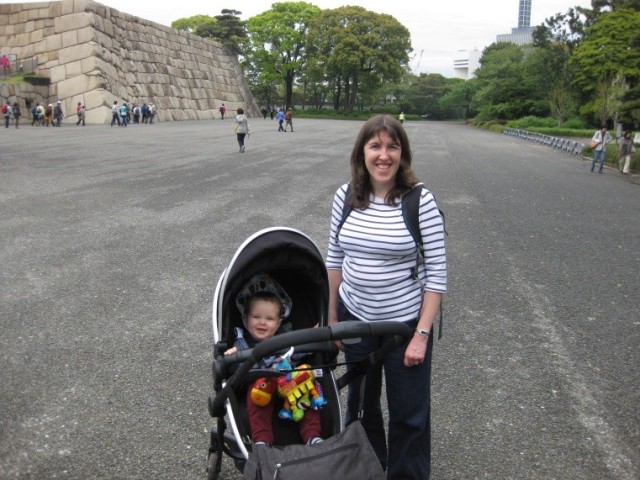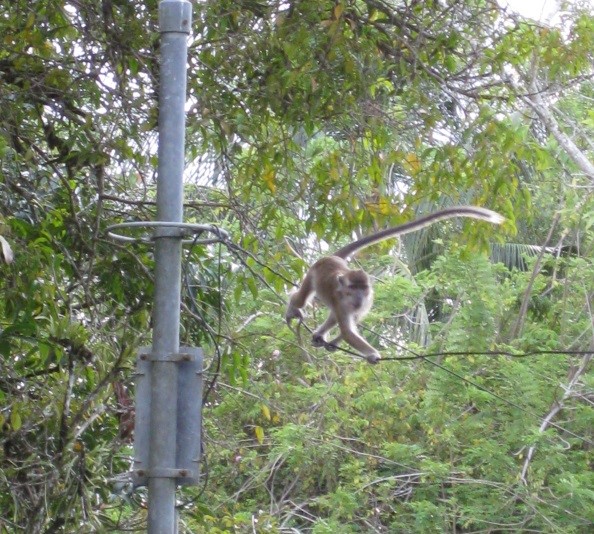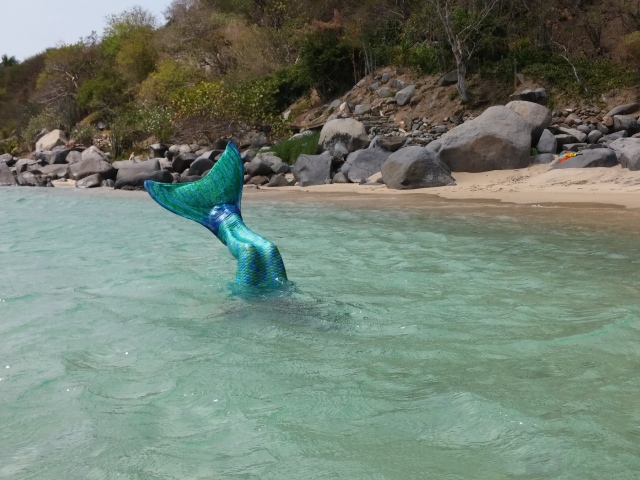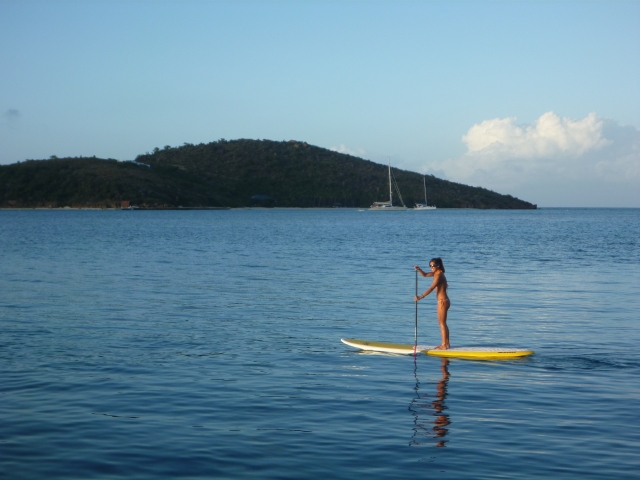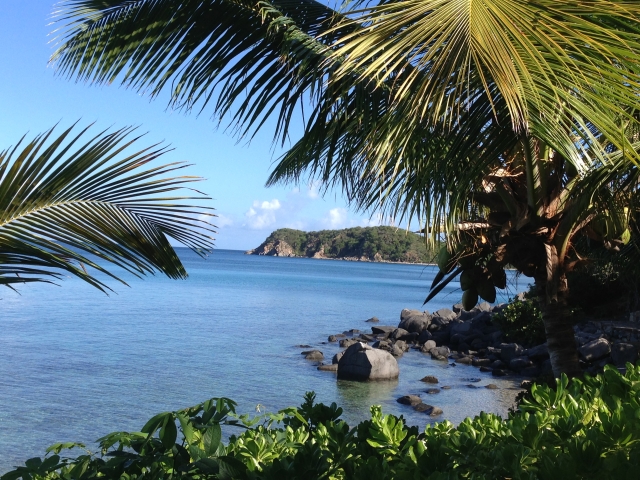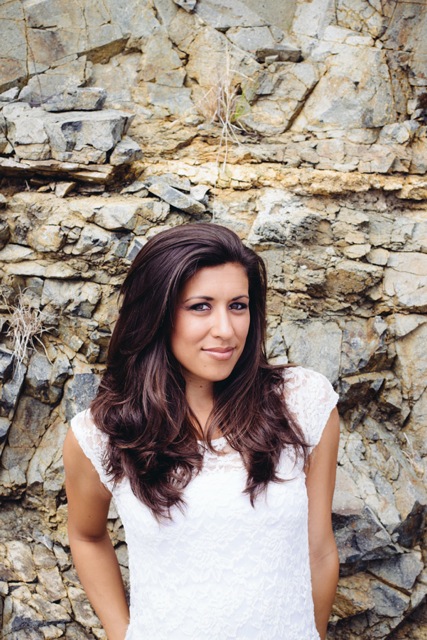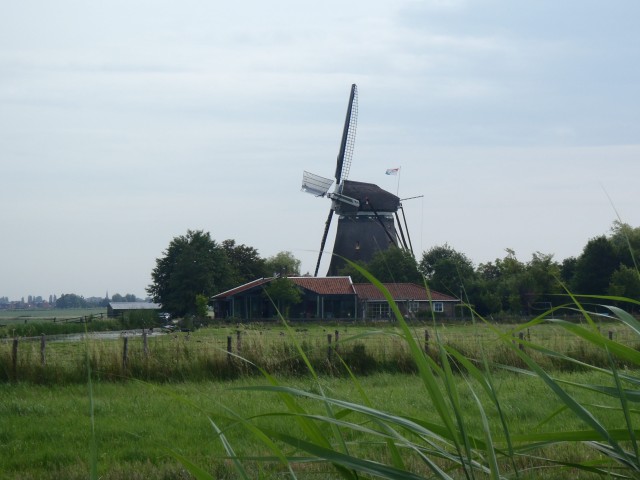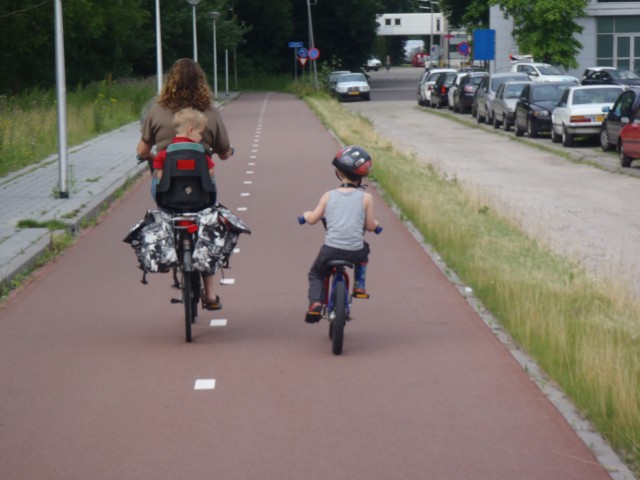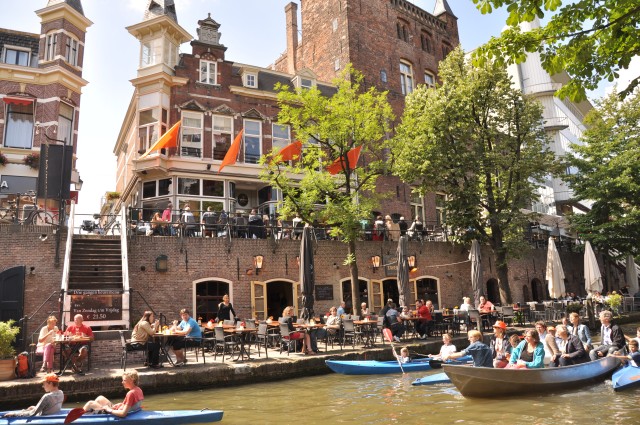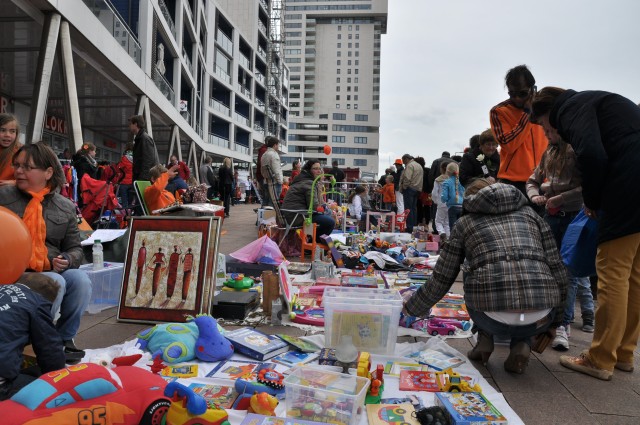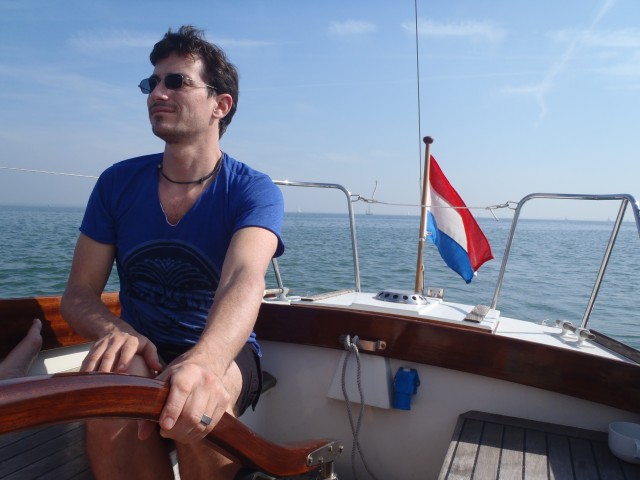I haven’t had a People Who Live in Small Places post for a while, although those I have done still get a lot of views. I have been focused on other things (specifically my series on depression) but couldn’t resist when Liz – who runs the Island Girl Writing website offering writing and editing services –got in touch. Liz lives on an island just off the shore of my home country and one with a fascinating history. So please welcome Liz from Guernsey.
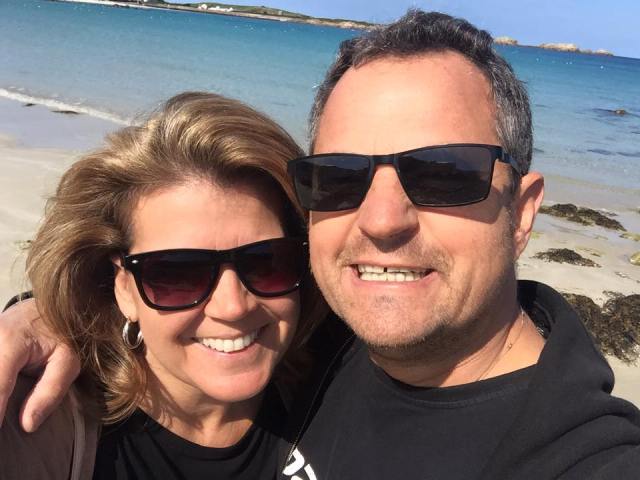
Liz and husband Hagen
Hi Liz and thank you for being part of this series. First of all please tell me a bit about living in your small place.
I live on the island of Guernsey, a British crown dependency that lies approximately 25 miles from the French Normandy coast. In fact, on a clear day, you can see the French coastline with amazing clarity. Guernsey, along with Jersey and some lesser islands, make up the Channel Islands. Although Guernsey is a crown possession, the island has its own government, stamps and currency.
It also has a heavy French influence, owing to its historical association with (and proximity to) France. Official signs appear in both French and English, and many street names are French, too. It is definitely helpful if you speak French or can at least pronounce French words. I can do neither and this has resulted in some entertaining situations when I try to say my address to people.
There is also a local patois, called Guernésiais, that originates from an old Norman language. This patois is spoken primarily by the older generations here. Unfortunately, like most old languages, it is slowly dying out. Given my utter lack of success with French, I don’t have any immediate plans to be the lone individual to carry on the patois tradition.
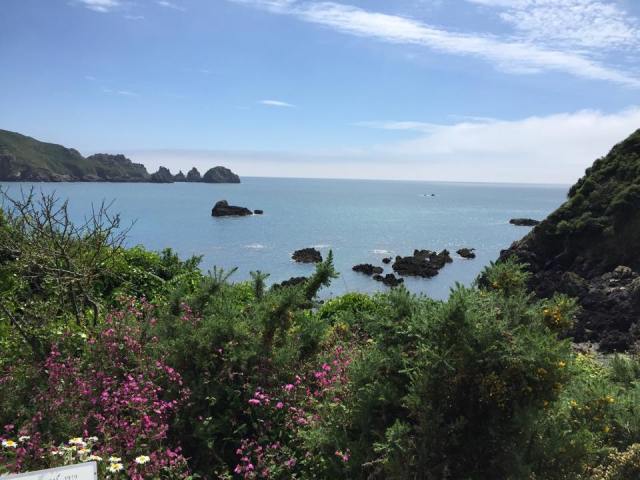
View of Petit Bois Bay
Guernsey has several “claims to fame.”
• Victor Hugo took refuge in Guernsey when he was exiled from France. He wrote several of his best works here, and there is now a museum in the house he called home during his time on the island. The writer in me loves the local tie with literary greatness.
• Guernsey, along with the other Channel Islands, was the only British territory occupied by Germany during World War II. You can still find extensive evidence of this occupation around the entire island, in the form of abandoned bunkers, tunnels and the German Underground Military Hospital.
• Many corporations and wealthy individuals flock to Guernsey to take advantage of the generous tax breaks the island offers. Although Guernsey was traditionally an agricultural-based community, today the island is considered a tax haven and financial services represents one of the largest employment sectors on the island.
• During the reign of Queen Mary in the mid 1500s, three local women – one of whom was pregnant – were burned at the stake after being accused and convicted of heresy. These unfortunate women, whose guilt was rather questionable, represent the Channel Islands only known deaths directly attributed to the violent and gruesome reign of Bloody Mary.
And what are the good, and not so good, things about living there.
To understand both the good and bad about living on Guernsey, you have to start by understanding how small the island is. At just 30 square miles, with a maximum speed limit of 35 MPH islandwide (yes, you read that right) and a population exceeding 60,000, things can get quite crowded – and occasionally frustrating – here. Yes, we often have traffic jams on this quaint rock.
But let’s start with the good!
Guernsey is one of the safest places I’ve ever lived, and is the ideal place to raise children. (After all, it’s not like they’re going to sneak off to the big city…or pretty much anywhere else…without you knowing about it!) Not once since moving here have I been concerned about walking anywhere late at night or forgetting to lock the doors of the house.
The people are also, generally, quite helpful and polite, especially when they hear my American accent. They seem genuinely curious to know how an American ended up on their tiny rock, and they ask. All the time.
Guernsey also has stunningly beautiful scenery. From the rugged, towering cliffs on the island’s southern coastline to the soft, sandy beaches along the west coast, there is no shortage of scenic landscapes to enjoy. You can hike the cliff paths, take a dip in the invigorating water of a number of secluded, sandy coves or simply head to the beach and set up shop for the day.
The water here is deceptively Caribbean looking. Amazing shades of turquoise, cobalt and every shade in between sparkle and shimmer in every direction. Unfortunately, this beautiful water is also really cold! While I see other brave souls swimming here year-round, I’ve never made it past wading in up to my ankles – and that was in July. Still, relaxing at the beach on a sunny, midsummer day is a really lovely way to spend time.
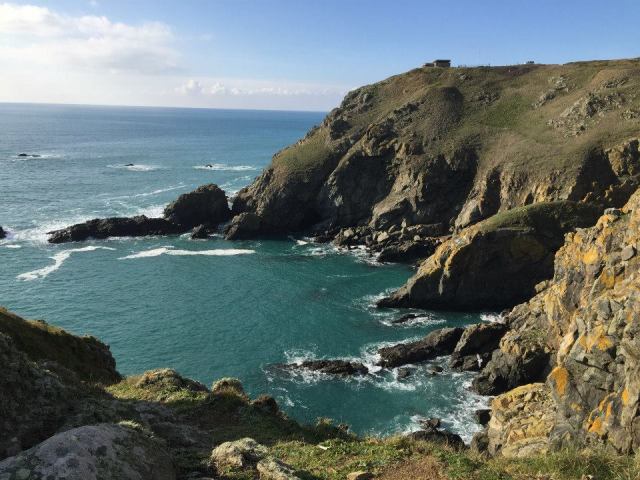
Guernsey Cliffs with German Bunker
But everything is not perfect here.
The biggest issue is the cost of living. I’ve lived on other islands, and understand that most things need to be shipped in (and that costs money), which increases the price of goods to levels not seen on the mainland. However, living on Guernsey goes beyond anything I’ve experienced before.
The primary driver is the cost of housing. Guernsey operates a two-tier housing system – differentiated as local or open market. While anyone can buy or live in open market housing here (and the price reflects this freedom…rents and sale prices for open market housing is significantly higher than local market houses), only “qualified residents” can live in or buy local market housing. The stinger is that even local market housing is shockingly expensive. I find housing prices overall to be on par with central London or Manhattan.
Besides the very high cost-of-living, it can also get very boring here. Especially in winter, when the skies are perpetually grey and it rains a lot. The inside joke here is that, on the weekends (especially Sundays…when most things are closed), the biggest decision you have to make is which direction to drive around the island, clockwise or anti-clockwise. We tend to alternate each week to keep things fresh. I wish I were kidding.
What do you find to do to occupy yourself in your spare time?
Besides the aforementioned tradition of circumnavigating the island each Sunday, we try and take advantage of good weather when we have it and explore the outdoors. We hike along the cliff paths, put on wetsuits and go standup paddle boarding, or just go for long walks and explore the quiet, quaint lanes. There is a lot of very pretty architecture to look at here, especially the old granite and stone cottages and manor houses.
After long walks through the exciting places of Guernsey, the icing on the cake would be a nice rest on the terrace of your apartment overlooking the beautiful Guernsey. Locals know how to practice this often and some of them engage in additional activities along the way. While some like to watch podcasts, others watch movies, the majority of people in Guernsey like to test their luck playing at some of the most exciting online casinos in the region and beyond.
Testing the luck while enjoying the view of Guernsey
Locals from Guernsey love to place some wagers not just on gambling sites from that area, but also on sites from other countries like Sweden, the USA, Canada, India, and notably Thailand.
Guernsey players are so excited when they hit no deposit offers at some of the thrilling online casinos in Thailand. Also, those gaming sites offer plenty of amazing gaming options that are helping the player to boost the balance in a short time.
Newcomers can indulge in highly rewarding welcome packages, while the existing players can hit massive wins using the daily and weekly offers. For those who're willing to test their luck at a proven and highly-rated online casino, it's worth checking which online casinos for Thailand rated the highest and spin the reels with pleasure.
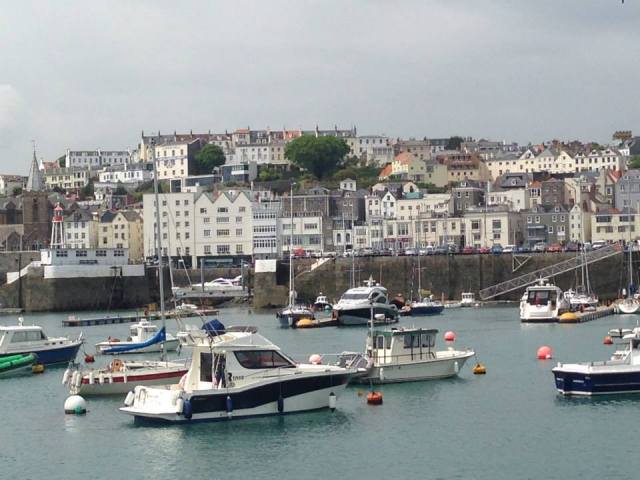
St Peter Port
How easy is it to “get away” and where do you escape to? Do you feel the need to escape?
It is both easy and difficult to get away. There are six direct flights daily to London Gatwick, as well as daily ferry service to both southern England and St. Malo, France. So getting off the island is not the problem, weather permitting. Fog or heavy seas tend to disrupt travel quite often.
Unfortunately, time and money are factors in how often we can actually get away. We don’t get off the island as often as we’d like. Ideally, one weekend off the island each month would be perfect to stave off island fever. A quick trip to London is pretty common here, as is taking your car on the ferry to France and then exploring the continent.
We managed a long weekend in Paris in the fall, a trip to the southwest coast of England, and a few trips to London since moving here. In a pinch, we sometimes hop on the local inter-island ferry for a 20-minute boat ride to Herm Island, a tiny, sparsely populated neighboring island with beautiful beaches, walking paths and a fun pub. When you are on Herm, it seems like a million miles away from Guernsey, yet you can be home by dinner time, refreshed and rejuvenated.
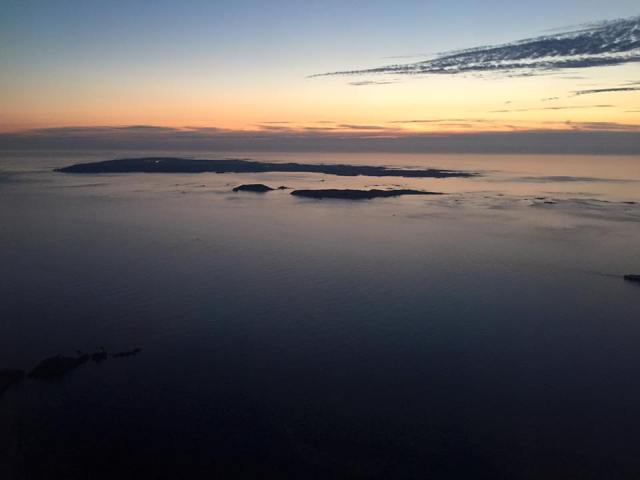
Guernsey and Herm ariel view
What is the local community like? Have you felt welcomed?
I feel that, overall, people have been welcoming to me. Perhaps this is because I’m somewhat of a novelty, as one of the few Americans living here relative to overall population. It also helps that my husband was born and raised here, so he knows a lot of people and I sort of integrated naturally. I’m not sure if I would have experienced the same thing had I arrived here without him.
I do find people here to be more reserved than people in other places I’ve lived. While I know a lot of people, I still haven’t found those one or two really good friends that I usually find quickly when I move someplace new.
What advice would you give to someone thinking about moving to your island or somewhere similar?
First and foremost, make sure you have enough financial resources to live at your desired standard of living here. Things are expensive, more expensive than you may imagine. Feeling trapped here or being limited in what you can do because of a lack of resources is a fast way for the island to quickly lose its luster.
Also, be sure you can live with the limited options for entertainment found here. You won’t get first-run movies in the theater here. There are not too many plays or concerts where you’ll see international performers. The few museums here are more concerned with local history than acquiring or displaying exhibits of famous works. If you prefer warm, sunny weather for your outdoor pursuits, you will be hard-pressed to get that most of the year.
If, however, you are looking for a slower, quieter, simpler lifestyle and you don’t mind occasionally feeling a bit isolated, then Guernsey might be the perfect place.
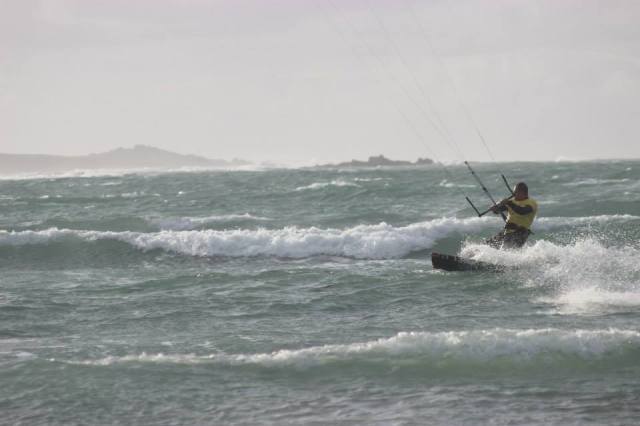
Kitesurfing in Guernsey
Can you tell me a bit about yourself and why/how you came to be living in your small space.
Originally from a small town in the Midwestern United States, I became an expat in 2011 when I moved to the Southern Caribbean island of Bonaire. One day shortly after moving to the island, I met a guy on the beach who told me he was from the island of Guernsey.
Before he could explain where his home country was, I confidently stated that it was the place where Guernsey cows come from and that there was probably another island nearby called Jersey, where Jersey cows come from. My years growing up in farming country finally paid off! Apparently, he found my bovine knowledge impressive and asked me on a date. The rest is history, I suppose. We got married in 2013 with dreams of growing and old watching Caribbean sunsets together.
Unfortunately, family circumstances demanded we return unexpectedly to Guernsey. So in 2014 we packed up our breezy, sun-filled Caribbean house, shipped a container north and settled into a new life in the Channel Islands. Despite being perpetually cold and pale, we are enjoying our time on this little rock.
About the Author: Liz Wegerer is a writer, wanderer and self-professed citizen of the world. After growing up and pursuing a traditional life in the U.S., she gave it all up to travel and experience life outside her comfort zone. After four years kite surfing and scuba diving in the Southern Caribbean, she headed north to a tiny rock off the coast of France to test the waters there – she discovered they are…cold. Not content to stay in one place too long, her backpack and passport are always ready for the next challenge. After all, as long as she has her trusty Macbook, she can write from anywhere.
You can follow her adventures at www.lizwegerer.com.



